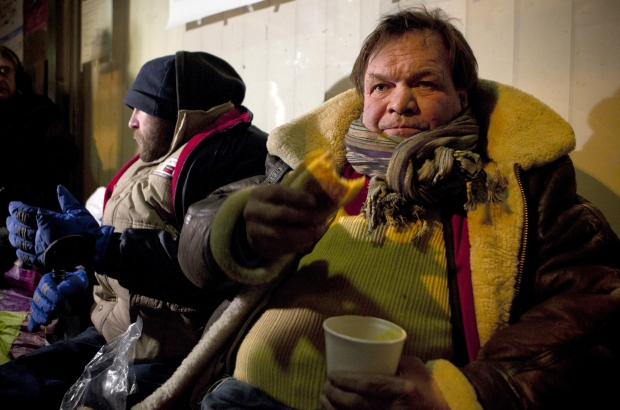- Daily & Weekly newsletters
- Buy & download The Bulletin
- Comment on our articles
Homeless organisations launch winter plans amid dropping temperatures
Organisations that help the homeless are activating their winter plans as temperatures begin to drop across Belgium, anticipating a heavy increase in demand for their services over previous years.
One such charity, Opération Thermos in Brussels, said the increase is expected to be “drastic” and is calling on public authorities to take action.
More than 45 teams of volunteers will be distributing hot meals every evening from 19.30 at Botanique metro station from 1 November until 30 April.
“Last year, we were faced with a two-fold difficulty: the number of beneficiaries rose steadily - up to 200 per evening for most of the season - and our costs soared due to inflation, which pushed up the price of raw materials, meal production and all the association's expenses,” said the organisation’s president Céline Vivier.
“We're expecting to have to drastically increase the number of meals distributed per evening, bearing in mind that we can't go beyond 200 without the cost to the staff becoming too great.
"The feedback we're getting from other associations also points in the same direction. So we're sounding the alarm: we need help from the public authorities now more than ever.”
Wallonia has already activated its cold weather plan as of 1 November, increasing shelter and support capacity for the region’s homeless until 31 March.
“Homelessness is one of the most extreme forms of precariousness,” said Kristel Karler, head of the social action department at the Walloon interior ministry.
“The fight against homelessness is indeed a priority for Wallonia, as it is for Belgium, but also for Europe, since the end of homelessness is the ambition envisaged for 2030.”
Karler said that although initiatives to count homeless people have been emerging since 2020, it is still difficult to give precise figures on the problem because the issue “covers many facets” and the definition of homeless is nuanced: while stereotypes invoke the image of people sleeping on the street, people who live with friends or relatives due to a lack of independent stable housing are also considered homeless.
Initial counts and estimates nevertheless shed insights on the issue, according to Karler, including that a significant portion of homeless people (around 30%) are women and young people (20-25%).
Karler announced that an additional €540,000 have been allocated for this year’s efforts to combat homelessness during the winter months.
“This will enable us to increase our reception capacity, for example at night shelters,” Karler said.
“It will also make it possible to increase reception capacity during the day, to extend opening hours and to step up street outreach work – in other words to go out and meet people in these unconventional places.
"This means reaching out to these people to ensure that they receive the help and support they need."
In addition to the emergency accommodation provided by several CPAS offices, and while waiting for the capacity to be extended, partners provide emergency accommodation.
One example is Laïcité Brabant Wallon, which is organising collections of light tents, blankets, sleeping bags and other basic necessities, including hygiene products. The drop-off points for the operation are located in Wavre, Nivelles, Tubize, Hamme-Mille and Genappe.
Details can be found at www.calbw.be



















